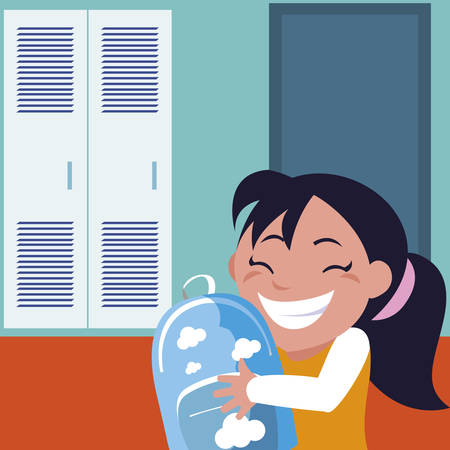Understanding Baby Sitting Milestones in the UK
As a new dad here in the UK, I quickly realised that every little achievement my baby made felt like a massive celebration. One of the biggest milestones we look out for is when our babies can sit up on their own. It’s not just about looking cute or snapping those first upright photos—it’s actually a really important part of your little one’s development. Sitting up means your baby’s muscles are getting stronger and their coordination is improving, which sets them up for other big steps like crawling and eventually walking.
In the typical growth journey for babies across Britain, sitting up is something health visitors and GPs often ask about during check-ups. It helps us parents (especially first-timers like me) to know what’s expected and when. While every baby is unique, there are general timeframes most little ones follow. Below is a handy table that shows where sitting fits into the wider developmental timeline most commonly seen in the UK:
| Milestone | Average Age Range | What to Expect |
|---|---|---|
| Lifting Head | 1-3 months | Baby starts to hold head up briefly while on tummy |
| Rolling Over | 4-6 months | Baby rolls from tummy to back and vice versa |
| Sitting Up (with support) | 4-6 months | Baby sits with your help or supported by cushions |
| Sitting Up (unaided) | 6-9 months | Baby sits independently without wobbling over |
| Crawling | 7-10 months | Baby starts moving around on hands and knees |
| Standing & Cruising | 9-12 months | Baby pulls up to stand and may move along furniture |
This sitting milestone isn’t just about physical ability; it also marks a period where your baby becomes more interested in the world around them, able to engage with toys and people in new ways. And trust me, you’ll notice how much they love seeing things from this new perspective! In the UK, reaching these milestones can vary a bit from family to family, but keeping an eye on these guidelines really helped reassure me that my little one was on track.
2. When Do Babies Typically Start Sitting Up?
If you’re anything like me, you’ve probably spent hours watching your little one wriggle and stretch, eagerly waiting for that magical moment when they first sit up all by themselves. It’s a huge milestone in any parent’s journey, but when does it usually happen here in the UK? Let’s have a look at the average timeline, NHS guidelines, and what local mums and dads have experienced.
The Typical Timeline for Sitting Up
Most babies in the UK start to sit with some support between four and six months. Sitting unaided usually follows between six and eight months. Of course, every baby is different – my own daughter was happier rolling about until she suddenly surprised us one morning at seven months by sitting upright with the biggest grin on her face!
| Age (Months) | Sitting Milestone | Common UK Experience |
|---|---|---|
| 4-6 | Sits with support (cushions, parent’s hands) | Most babies need a helping hand; lots of wobbles! |
| 6-8 | Sits unaided for short periods | Babies start propping themselves up; parents often keep soft mats nearby “just in case” |
| 8+ | Sits steadily and can reach for toys without toppling over | Many babies get more confident, parents swap bouncers for play mats |
NHS Guidelines: What Do They Say?
The NHS suggests most babies are able to sit without support by around 8 months old. However, they remind us that some may take a little longer, especially if they were born prematurely. If you’re ever unsure, or if your baby isn’t showing signs of sitting by nine months, it’s always worth having a chat with your health visitor or GP – most are brilliant at giving reassuring advice tailored to each family’s situation.
Local Parents Share Their Stories
I chatted to a few parents at our local baby group in Manchester. One mum mentioned her son started sitting unaided at just under six months, while another dad said his twins took until nearly nine months – both are now happy and healthy toddlers. The consensus? There’s no “right” time; it really does vary from family to family.

3. How to Spot the First Signs of Sitting Up
As a first-time dad in the UK, I quickly learned that spotting those initial wobbly attempts to sit up is just as exciting as witnessing your baby’s very first smile. While every baby develops at their own pace, there are a few early signs British parents can look out for before their little one manages to sit unaided.
Early Signs to Watch For
It starts subtly – you might notice your baby lifting their head higher during tummy time or trying to prop themselves up with their arms while lying on their belly. These small efforts build core strength, which is essential for sitting. Some babies will rock back and forth when placed in a supported sitting position, while others might enjoy spending more time upright on your lap or propped up with cushions on the sofa (always supervised, of course!).
Typical Early Sitting Behaviours
| Sign | Description | UK Parent Tip |
|---|---|---|
| Lifting Head Steadily | Bub holds their head up confidently during tummy time. | Try short daily sessions on a soft play mat. |
| Pushing Up on Arms | Baby props themselves up on forearms from the tummy. | A rolled-up muslin square under their chest can offer gentle support. |
| Sitting Supported | Happy to be propped upright with pillows or in your lap. | Cushions on the floor work well for safe practice—just avoid hard surfaces! |
| Rocking Side-to-Side | Bubs start to shift weight and wobble when seated with help. | This “wobble” is normal; just keep close by in case they topple over! |
What UK Parents Often Notice
You’ll often hear mums and dads at baby groups comparing notes about how their little ones suddenly seem interested in what’s going on around them—especially if there’s a good view of the telly! In my experience, as soon as our daughter could see her toys better from an upright angle, she wanted to be sat up all the time. It’s also common here to use soft play gyms and bouncer chairs, but remember: these help develop muscles, but always mix things up with plenty of floor time. Keep your camera ready—you’ll want to catch that proud moment when your baby manages to balance solo for a second or two!
4. Ways to Encourage Safe Sitting at Home
Helping your little one sit up safely is a big milestone and, as a new dad myself, I’ve picked up quite a few handy tips from other UK parents and health visitors. Below, you’ll find practical advice tailored to British homes, including common equipment, safety measures, and everyday adjustments that make the journey smoother for both you and your baby.
Practical Tips from UK Parents
- Tummy Time: This classic is recommended by the NHS. Place your baby on their tummy for short spells throughout the day (while supervised) to build neck and back strength essential for sitting.
- Supportive Lap Sitting: Sit your baby on your lap with their back against your chest. This lets them get used to an upright position while feeling secure.
- Floor Play: A safe play mat or soft rug in the living room gives babies space to practice pushing themselves up without risk of hard knocks.
- Minimal Use of Baby Seats: In the UK, it’s common advice not to rely too heavily on bumbo seats or similar devices. While they’re fine for short periods, too much time can actually slow muscle development.
Popular Equipment in British Homes
| Equipment | Main Use | UK Safety Tip |
|---|---|---|
| Bouncer Chair | Short supervised breaks | Never leave baby unattended; use only on floor level |
| Activity Gym/Playmat | Tummy time & rolling practice | Avoid over-cluttered areas; check for loose toys |
| Nursing Pillow | Sit behind baby for gentle support | Stay close by; remove pillow when not in use |
| Cushions & Blankets | Create a soft ‘nest’ around baby while practicing sitting | Ensure there’s no risk of suffocation; supervise always |
Making Your Home Safer for Sitting Practice
- Clear the Area: Move coffee tables or anything sharp out of reach. Many UK families temporarily rearrange their living rooms for baby milestones!
- Avoid Raised Surfaces: Always practice sitting on the floor rather than sofas or beds to prevent tumbles.
- Dress Comfortably: Opt for soft cotton babygrows with grip-friendly socks, popular in British shops like M&S or John Lewis.
- Stay Nearby: The best piece of kit is you! Always supervise your little one closely when practising new skills.
The Role of Health Visitors in the UK
If you’re ever unsure, don’t hesitate to chat with your local health visitor. They can offer advice specific to your home and baby’s progress—a real lifeline for first-time parents like me!
5. When to Worry: Signs to Watch Out For
As a new dad myself, I know how easy it is to compare your little one to others and worry if things aren’t happening at exactly the same time. Most babies in the UK will sit up somewhere between 4 and 9 months, but every child develops in their own way. Still, it’s important to recognise when your baby might need a bit of extra help. Here’s what you should keep an eye out for:
Common Reasons for Concern
| Signs | What It Could Mean | When to Seek Support |
|---|---|---|
| Not sitting with support by 8 months | Possible delay in muscle strength or coordination | If your baby can’t sit with help by this age, speak to your health visitor or GP |
| Very floppy or stiff movements | Potential issues with muscle tone | If your baby feels unusually floppy or stiff when you try to sit them up, get advice from a healthcare professional |
| No interest in trying to sit up at all after 9 months | Lack of motor development progress | This is worth mentioning during your next health review or appointment |
| Sudden loss of sitting ability after previously mastering it | Regression can be a sign something else is going on | Book an appointment with your GP as soon as possible |
Your Local Support Network in the UK
In the UK, health visitors are an amazing resource for parents – they’re there not just for weigh-ins and measurements, but also for any worries about development. If you’re concerned about your baby’s sitting milestones or notice any of the signs above, don’t hesitate to reach out. You can contact your health visitor directly, pop into your local children’s centre, or book an appointment with your GP.
A Dad’s Honest Advice
I remember fretting over my son’s milestones, but our health visitor reassured me that small differences are normal. That said, trust your instincts – no one knows your baby like you do! If something doesn’t feel right, ask for advice early on. The NHS and local children’s centres are there to support families like ours.
6. UK Resources and Support for Parents
As a new parent in the UK, it’s completely normal to have questions about your baby’s sitting milestones. Thankfully, there are plenty of trusted local resources and supportive communities to help you along the way. Here’s a quick roundup of some of the best places to find guidance and connect with other parents:
| Resource | Description | How It Helps |
|---|---|---|
| NHS Baby Milestones Guidance | The NHS provides up-to-date information on all aspects of child development, including when babies typically sit up and what signs to look out for. | Reliable medical advice, milestone timelines, red flags to discuss with your health visitor or GP. |
| National Childbirth Trust (NCT) | NCT runs local classes and support groups for parents across the UK, offering both practical advice and emotional support. | Meet-ups, Q&A sessions, chance to chat with other parents about their experiences with baby milestones. |
| Mumsnet Parenting Forums | One of the largest online communities where UK parents discuss everything from sitting up milestones to sleep routines. | Real-life stories, tips from fellow mums and dads, reassurance that you’re not alone! |
| Baby London Local Groups | A useful directory for finding playgroups, baby classes, and parent meet-ups in your area. | Opportunities for socialising—both for you and your little one—and sharing advice face-to-face. |
| Your Health Visitor | Every family in the UK is assigned a health visitor who can offer tailored support during your child’s early years. | Personalised advice, home visits, milestone check-ins, professional reassurance if you’re worried about progress. |
Remember: Every baby develops at their own pace. These resources are here to give you reassurance and expert advice whenever you need it. Whether you’re after NHS-backed information or just want a chat with another mum or dad over a cuppa at a local group, help is always close by in the UK parenting community. If you ever feel concerned about your babys sitting progress or any other milestones, don’t hesitate to reach out to your health visitor or GP—they’re there to support you every step of the way!


